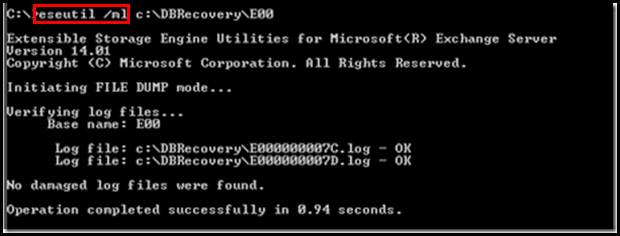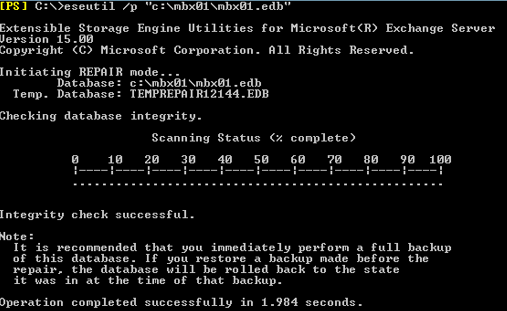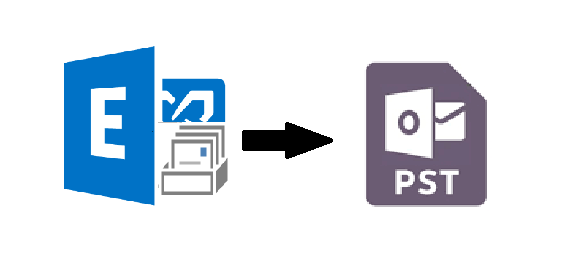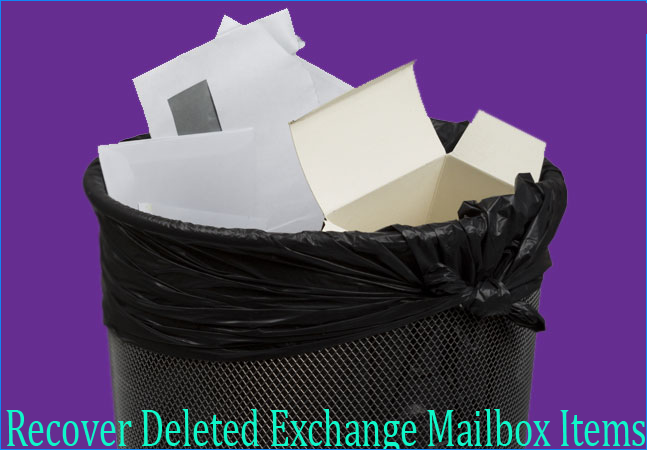Using ESEUTIL to Repair Exchange Database | Get the Solution
Exchange Database contains crucial information of the organization and it is important to keep the EDB file safe & secure from corruption and other error but due to various reasons such as: Exchange server crash, virus attack, software as well as hardware failure, etc… result in damaging or corrupted the EDB file. This write-up help users and provide the solution by using eseutil to repair Exchange database in detail.
Overview Of Exchange ESEUTIL Utility
ESEUTIL (Extensible Storage Engine Utilities) is the command-line tool built-in Exchange Server. It works with Exchange database file, ESE (Extensible Storage Engine), Streaming Media File, and Log file. When any database gets damaged or corrupted, then we use this utility to repair Exchange database via the ESEUTIL cmdlet.
It helps the users to check database status, perform the soft and hard repair, perform repair job like – checking the integrity of mailbox database, defrag the database, reduce DB size, etc…. The storage location of this tool is: C:\Program Files\Exchsrvr\Bin.
Important Points Before Using ESEUTIL to Repair Exchange Database
- It is not a fail-safe tool and users may lose data while repairing the mailbox database
- After recovery, it isn’t sure that the user will mount the database
- According to the level of database damage and its size, it takes time to repair the database. Also, while repairing the DB users are not able to send or receive any mails. Even they are not able to work or access their mailboxes during the process
Rapid Solution: If you are new to Microsoft Exchange Environment then it would be very difficult to use the manual solution to repair the mailbox database. To avoid all this complexity, users can use the SysTools Exchange Server EDB Recovery Tool that help users to recover, repair offline/dismounted EDB file and mailboxes from minimal as well as major corruption without using any cmdlet in a hassle freeway. After recovery, users can easily export the recover & healthy Exchange mailboxes to the Live Exchange Server, Office 365 and multiple file formats. To backup the EDB mailboxes users can export Exchange mailbox to PST, EML, MBOX, HTML, MSG, PDF file formats in a simplified manner.
Pre-Requisites Before Using ESEUTIL to Repair Exchange Database
- You have to login as Exchange Admin
- Take EDB file backup
- Exchange database should be in offline/dismounted mode before using this utility
- Free enough storage space (It should be more the size of database)
- Use CHKDSK tool to check the hard disk for bad sector
- Exchange Database & Streaming Media File should be present
Use Steps For Using ESEUTIL to Repair Exchange Database
Follow the steps given below to repair the EDB
Step 1: Open the Run Dialogue box by pressing WIN + R key >> Insert cmd and click on the OK button
Step 2: Then go to the storage location of ESEUTIL utility i.e. C:\Program Files\Exchsrvr\Bin
Step 3: Then, in the Command prompt enter Eseutil.exe
Step 4: Insert the cmdlet given below to check the database state which is clean or dirty shutdown
Syntax:

Example:

Note: If the database is not in clean state then we have to repair Exchange database.
Step 5: Check the health of the log file by using the command below:
Example: eseutil /ml c:\DBRecovery\E00

Note: If all your log files are healthy then it will display the message “No damaged log files were found”.
Step 6: Use the eseutil /r cmdlet given below to perform the soft repair to repair Exchange database

Step 7: Then again check the database status, if it display the status i.e. clean shutdown then you can directly mount the database and access the Exchange data but if the above command doesn’t work then you can use the eseutil /p command given below to repair database.
Note: Before executing this cmdlet will purged the data which is damaged and there is no guarantee that your deleted Exchange data will recover.
After running the command a warning dialogue box will appear. So, to repair the database you have to click on the OK button.


Step 8: Use the following command to check the reliability of the repaired Exchange database
Syntax: Isinteg –s {insert_Exchange_Server_name} -fix -test all_tests
Step 9: From the Microsoft Exchange Server directory select the recovered Exchange database and mount it.
Bringing It All Together
This write-up provides detailed information for using eseutil to repair Exchange database by using the solution provided here. If this utility fails to repair the EDB or you want to avoid all the technicality & complexity to repair the .edb file, in such case, it is recommended to use the advanced software mentioned here which easily recover & repair the offline as well as dismounted Exchange database and Streaming Media file from minimal & major corruption. Therefore, it supports all Exchange Server version and easily exports the recovered and healthy mailboxes directly to Exchange Server mailboxes, O365, and multiple file formats in a simplified manner without any hindrance.
Related Posts



